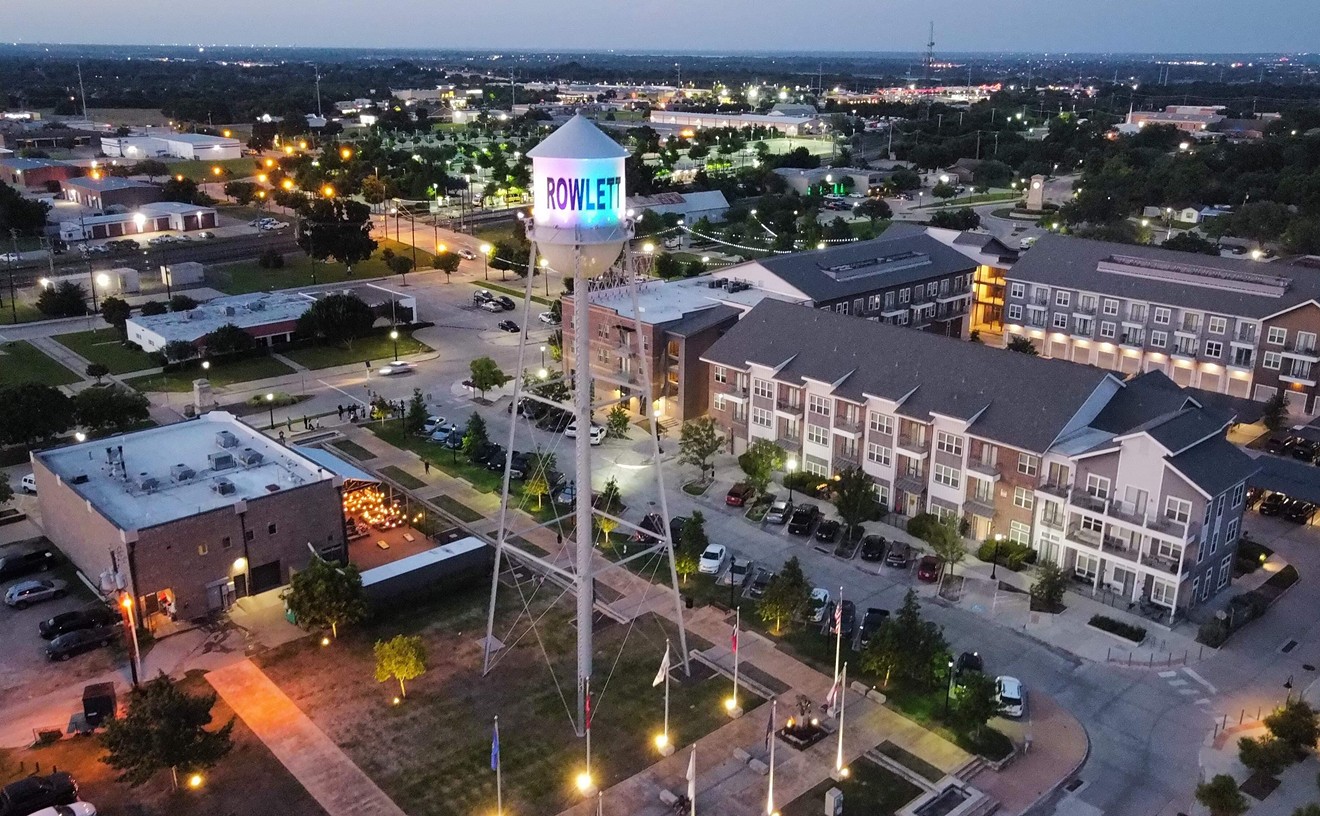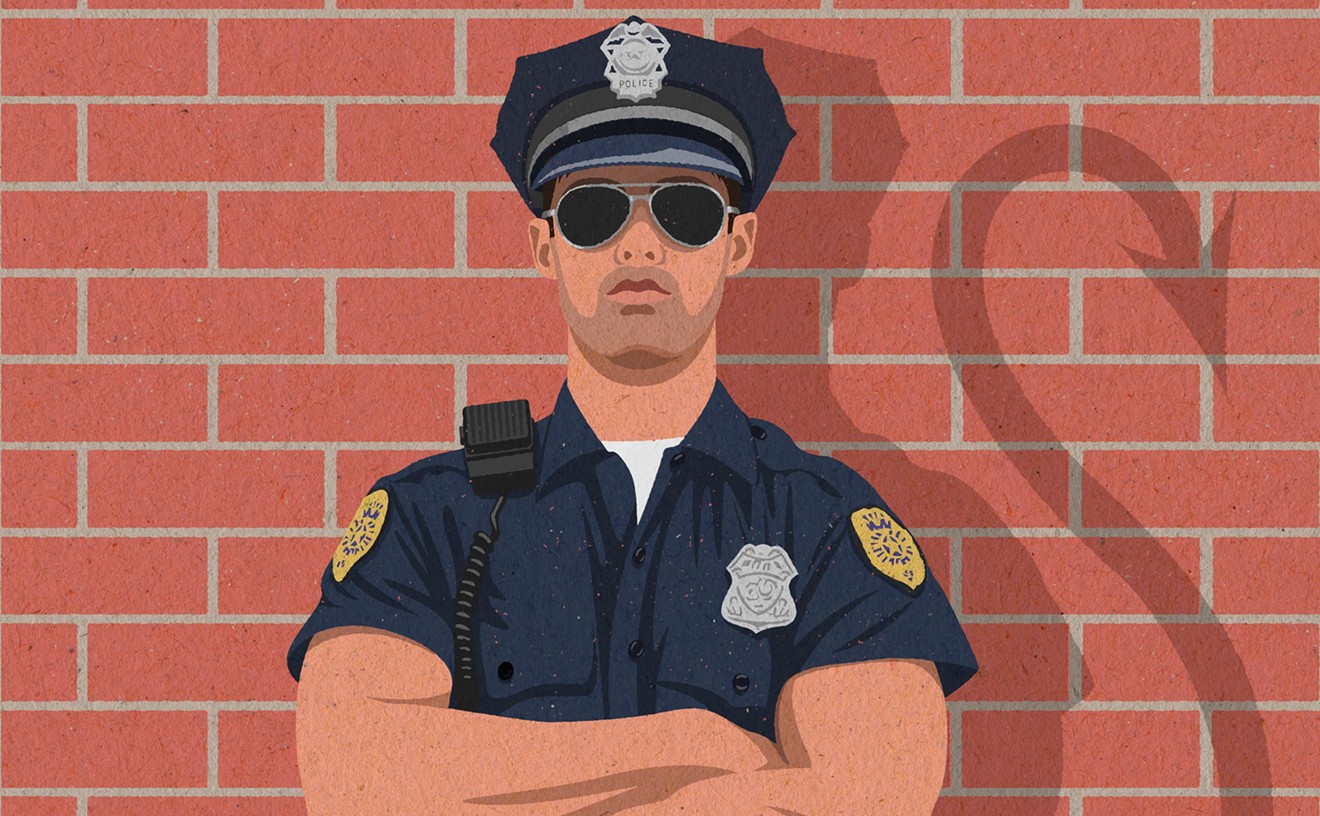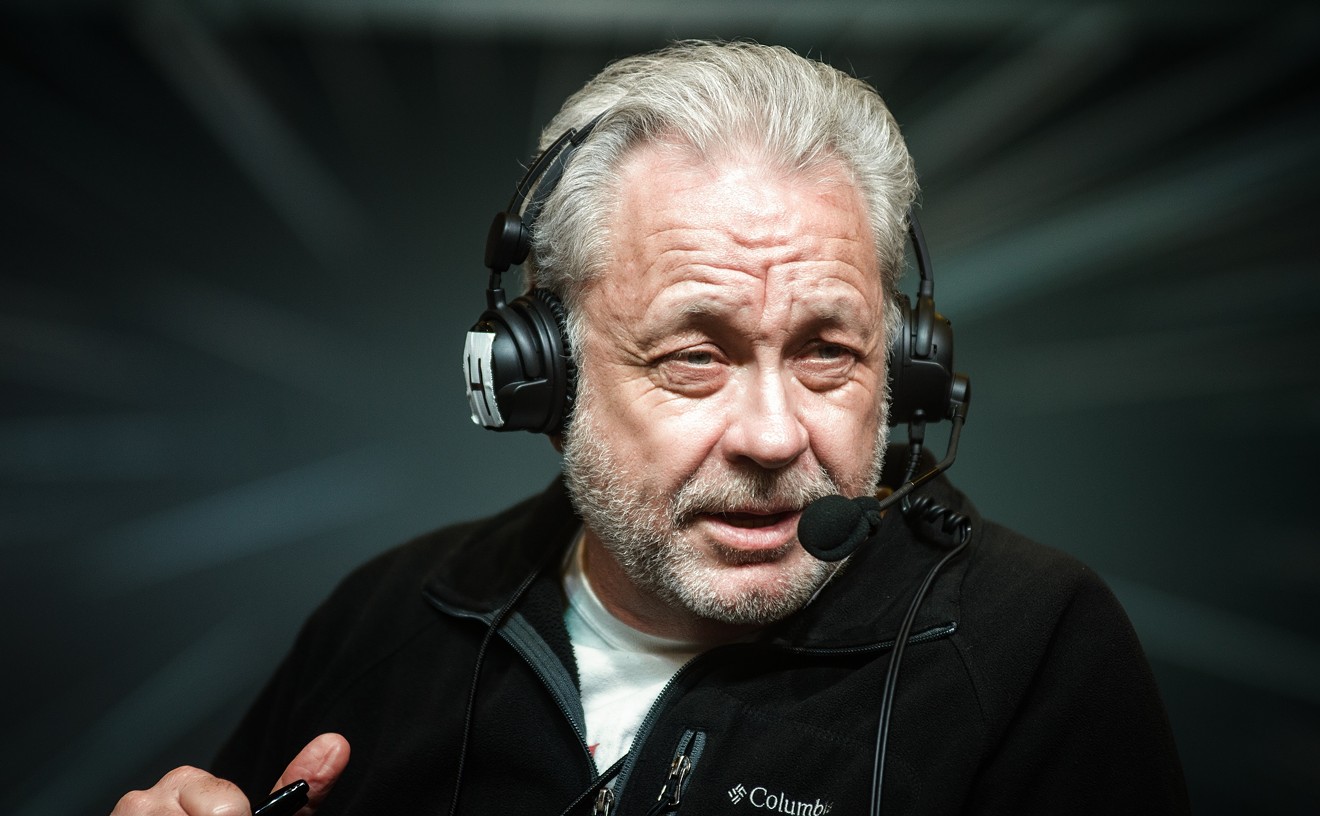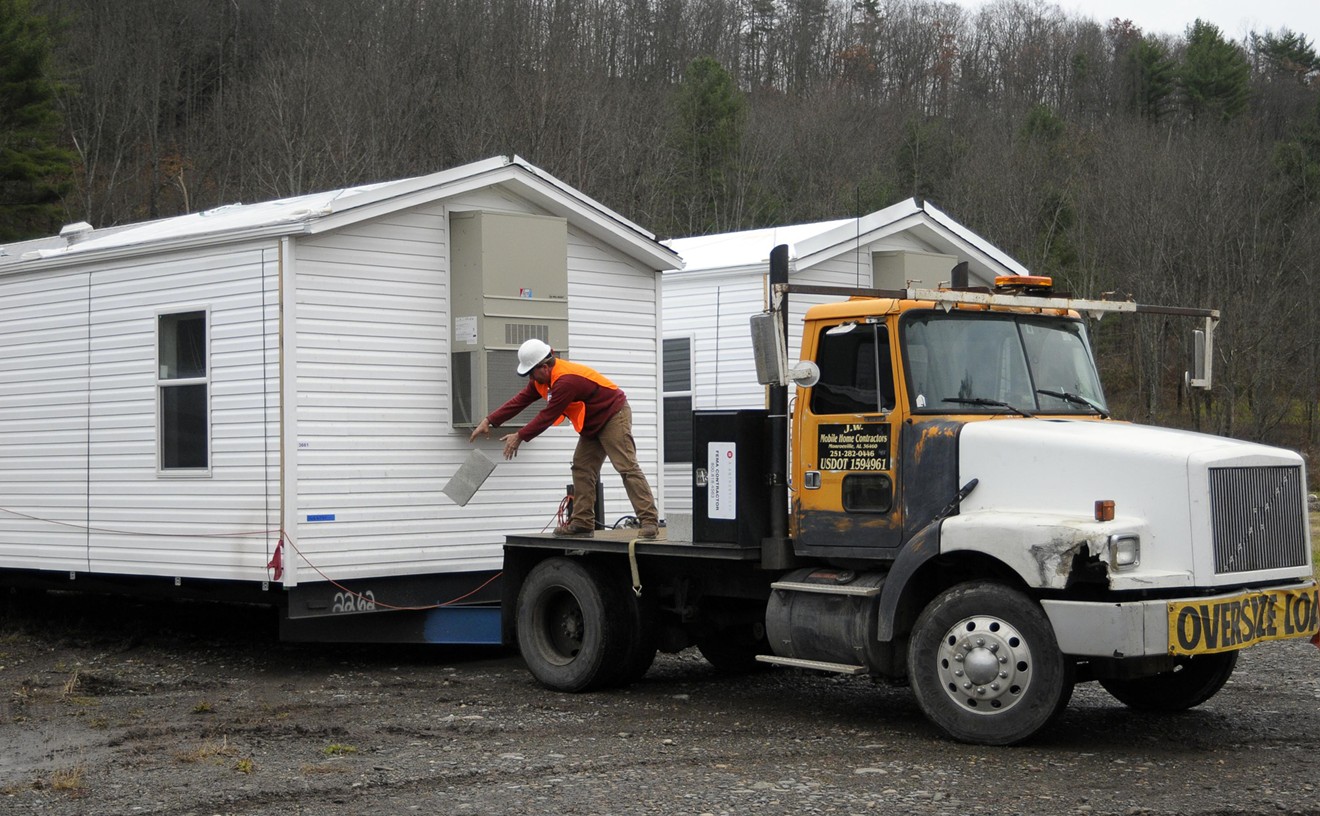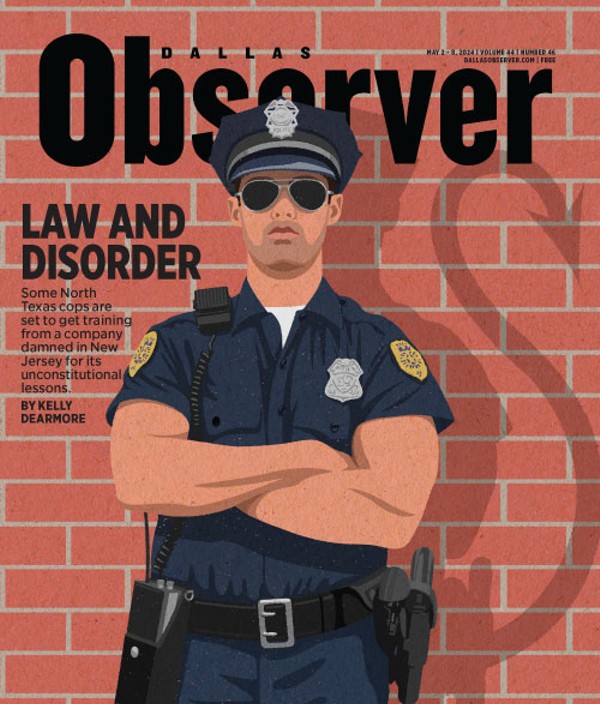She'd done several interviews with Texas prisoners over the years. But Mike Viesca, TDCJ's new director of public information, told Casey in September that book writers aren't allowed to interview TDCJ prisoners. She pointed out that competing author Suzy Spencer, who has a deal with St. Martin's Press for a book on the case, had already interviewed Tarlton in prison. Casey says Viesca "acted like he didn't believe me."
In fact, Spencer's July interview with Tarlton may very well have been the last face-to-face interview between an author and a Texas inmate. When Spencer requested a follow-up interview in November, Viesca turned her down, too.
Michelle Lyons, TDCJ's public information manager, says that while prison rules state that the "news media" can interview any prisoner who agrees to talk, it's their policy that "book authors are not media." Lyons says that in years past, "there were exceptions made that shouldn't have been made."
For years, authors' requests were routinely approved by Larry Todd, TDCJ's longtime director of public information. He retired in August, as did veteran public information manager Larry Fitzgerald. Their replacements, Viesca and Lyons, are not very popular with Casey, Spencer and other writers of true-crime books. Todd and Fitzgerald were widely admired by Texas criminal justice reporters for their quick responses and solid grasp of issues--as well as the occasional bending of TDCJ's restrictive rules on prisoner interviews.
Casey and Spencer praise Todd, who granted them many visits with prisoners. Both authors have solid credentials. Casey has written three true-crime books, was a contributing editor at Ladies' Home Journal for 15 years and has been published in various national and local magazines. Spencer wrote a best seller about Andrea Yates, the Houston mother who drowned her five children. She's also done articles for People, Writer's Digest, the Austin American-Statesman and the Austin Chronicle.
Spencer and Casey presumed that they would be allowed to interview the two women convicted in the Austin case. They were wrong.
Lyons says that TDCJ doesn't distinguish between unpublished book writers and best-selling authors: They're all banned, period. She says that even if established nonfiction writers or heavyweights like Stephen King, John Grisham or Ann Rule asked to interview Texas prisoners, their requests would be denied.
Lyons says that although she could verify Casey's and Spencer's credentials, that's not true of all book writers. Her office arranges about 1,000 interviews a year for reporters and gets about 100 requests a year from authors--including some bogus ones from prisoners' friends or families who claim they're writing books, according to Lyons.
But prison rules don't ban book authors. TDCJ's policy details how prison officials will respond to requests from the "news media." Lyons says writers without a daily, weekly or monthly deadline don't qualify, so there is no way to process their requests. Authors also tend to want far longer access to inmates, she says.
"In the two years I have worked for this agency, I have not yet received a single request from an author who wanted to interview an inmate for just one hour; most authors ask for interviews spanning several days," she says. "We don't have the staff to [monitor] lengthy book writer interviews."
Casey says that TDCJ's reasoning is flawed. "I'm not asking for any special treatment. I didn't ask to move into death row and live there for a month."
A Nightline crew spent 24 hours filming Ted Koppel in a maximum-security cell in 2000. America's Most Wanted was allowed to re-create the prison break of the "Texas Seven" inside the Connally Unit in 2001. Casey says those projects and many others took up much more time from staff than what she is requesting. "I have no standing as a credentialed Texas journalist working on a book," Casey says, "while a journalist from a newspaper in Italy--with a circulation of a few hundred--is eligible to interview inmates."
Spencer says of the prison system's change: "It almost shouts that they fear quality research and have something to hide."
Former Dallas Observer staff writer Carlton Stowers also writes true-crime books, some of which require inmate interviews. Stowers could enter a prison if he was working on a story for the Observer, but not if he's writing a book. Stowers dismisses TDCJ's claim that authors' credentials are difficult to verify. "It's so easy for a legitimate writer to validate him or herself," he explains. "Send 'em the contract. That makes you as legitimate as any journalist."
In many cases, a member of the print media would prefer a phone interview over traveling hundreds of miles for a brief interview face to face, but unlike every other state, Texas prisons have no phones. Writers who want information from convicts must either see them in person or depend on letters.
About one-third of Texas prisoners are functionally illiterate, and letters to authors also would be read by prison officials. Spencer says, "The inmate I'm seeking to interview is afraid to write her answers for fear they'll get back to another inmate who has already had her beaten." She adds that in-person interviews are essential to her job. "If an inmate writes in a letter, 'I didn't do it,' that doesn't tell an author much. But if an author can observe an inmate saying, 'I didn't do it,' and that inmate has a smirk on his face..."
Lyons says TDCJ is not trying to stifle freedom of speech or of the press. "I understand how important that is," says the former Huntsville Item reporter. Lyons covered TDCJ for three years and has done more than 50 prison interviews as a journalist. Lyons says she doesn't remember when or how the change came about. But it seems to have happened shortly after Todd's retirement.
Todd's replacement, Mike Viesca, declined to be interviewed for this article. Casey is livid with Viesca; she says he told her one reason for the change was "because we got paid."
A constant refrain from TDCJ officials is that book writers are in it for the money while reporters have more noble purposes. But Stowers says, "The argument about us making money is absurd," noting that he also got paid as a reporter to do prison interviews.
Casey and Spencer have started campaigns to get TDCJ to let them in the door. Several writers groups and First Amendment organizations have joined the cause. But any change will likely come too late for Casey to meet her January deadline.





